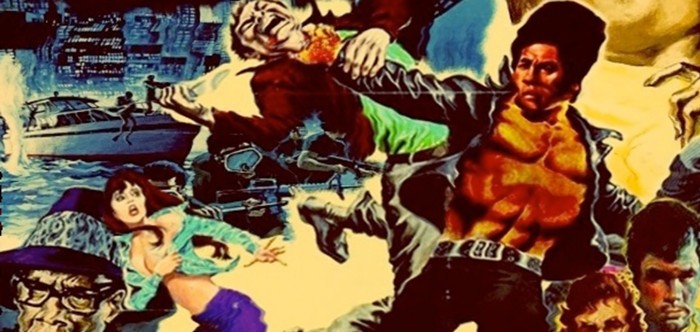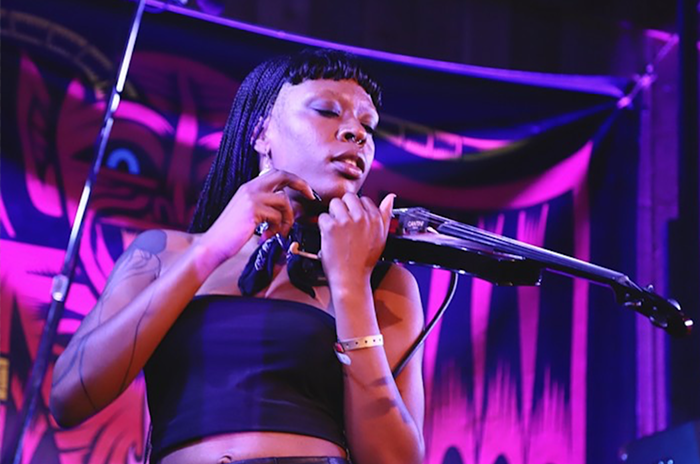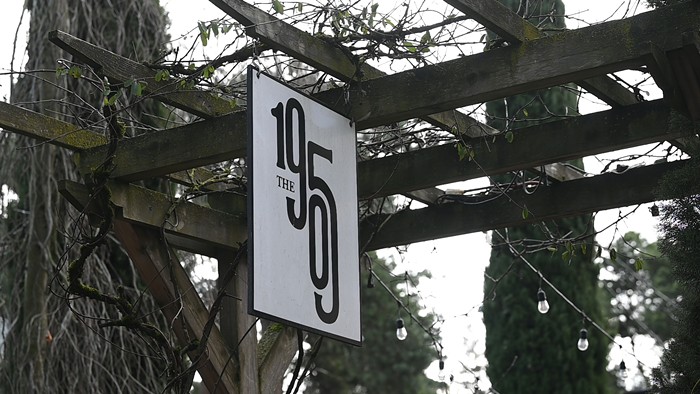Jonny Ragel's upbringing in a Portland neighborhood south of Mt. Tabor wasn't particularly musical. His mother sang and his father dug good rock cuts. But there was nothing wildly out of the norm: no traveling family band, no specialty grooming, and no perfunctory training.
Still, Ragel—who makes music under the name Boy Eats Drum Machine—grew up to become one of Portland's most gifted musicians. It seems he was born to fixate on the way notes sound when combined, to obsess over the results of instruments colliding, and to dedicate himself to rearranging the pieces of music he loves most—with much love—into something entirely his own. "I didn't want to be an electronic act, I didn't want to be rock, and I didn't want to play drums," Ragel says from across the table at a Southeast Portland lounge.
And so sidestepping the confinements of genre, avoiding the lure of committing to a single style, Ragel's approach was unique from the start. He played in a rock band in his early 20s but quickly tired of it. "I was frustrated with the rock band thing," he says. "So, about five years ago, I bought a MPC2000... it's a classic hiphop R&B drum machine."
Ragel began writing songs using the drum machine, turntables, rare vinyl, his striking voice—the range of which maneuvers impressively from low and intimate to falsetto and passionate—and a multitude of other instruments. "I sequenced a demo and sold 100 copies through Music Millennium," Ragel says.
But it wasn't until he created Pleasure, his debut album self-released in 2005, that Ragel revealed his exceptional talent for all-over-the-place musical composition bound by danceable hooks and sincere heart. Blending Southwestern guitar twang, tropical beats, Casio keys, and more, Pleasure is a bit darker, subdued in static and distance, than BEDM's new concept album, Two Ghosts. "Pleasure was more emotional and vulnerable," Ragel says. "I was more deliberate with Two Ghosts, like standing back to make a painting."
On the new album, Ragel—now accompanied by Ben Rickard (synth, guitar, vocals) and Peter Swenson (drums)—tells the story of a couple who run away from a world whose intentions are worsening, hoping to find emancipation from the powers that be, Orwell-style. "So come with me/Away from time/We'll let the road fall behind alone/'Cause the world keeps getting worse intentions/And I don't want a piece of it anymore," Ragel croons with the bravado of an R&B singer on "From an Oregon Shore," which is anchored by a heavy Mike Watt-like bass line. "The first five songs are optimistic," Ragel says. "But then they get caught."Interlaced with saxophone, organ, violin, cello, flute, accordion, and weightless female vocals courtesy of Laura Gibson, Two Ghosts is a treasure chest of instrumentation, arranged masterfully around a powerful story arch of emotions that rise, climax, and fall like last night's dream you still can't shake.
And while Ragel's tale—which he illustrates like a children's story in the album's artwork—is a fictional one, it seems the desire to escape confinement that penetrates the album could very well be his own. After all, Ragel and all his gifts couldn't fit in if they tried.


















